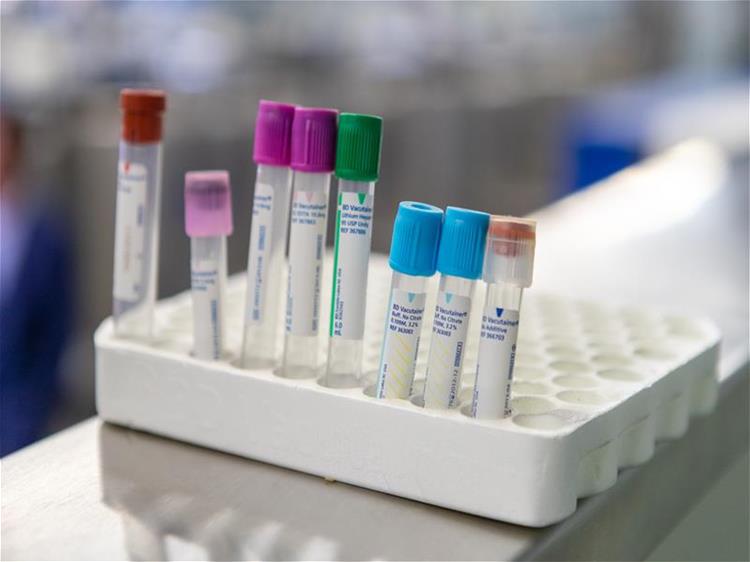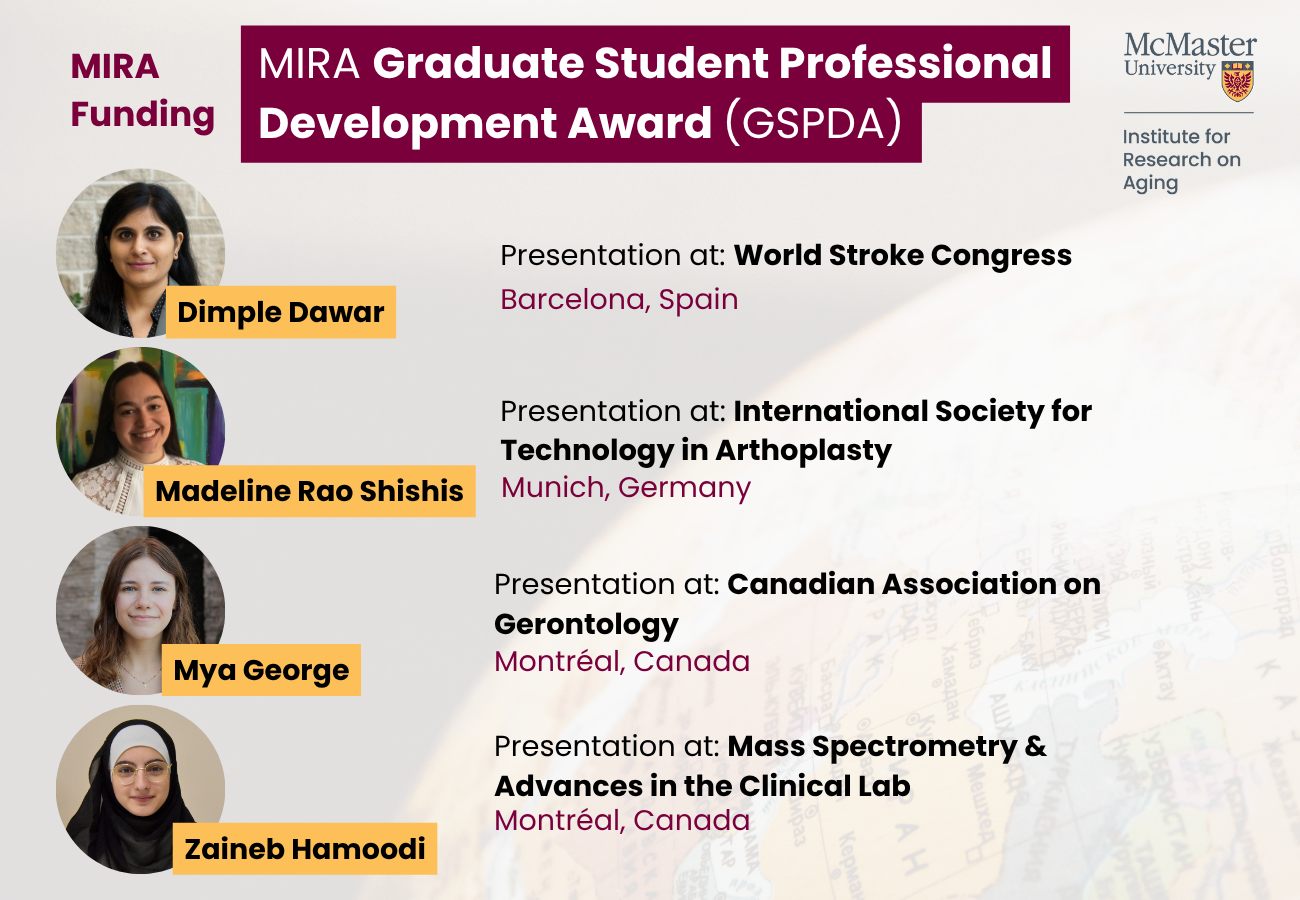
Published: August 27, 2021 By: Gésine Alders
The McMaster Institute for Research on Aging (MIRA) has announced two new funding opportunities to support research in the biology and basic sciences of aging. The MIRA Biology of Aging Catalyst Grant ($40,000) will support an investigation of the potential drivers of the aging process, such as inflammation, stress, epigenetics, metabolism, macromolecular damage, proteostasis, and stem cell regeneration; incorporating the study of chronic disease, basic science, and clinical research into the experimental design. The Biology & Basic Sciences of Aging Interdisciplinary Postdoctoral Fellowship ($50,000 for salary, plus $3,000 for research expenses) will be awarded to an interdisciplinary team to facilitate the recruitment of a highly qualified fellow and to address a research topic in this field.
In launching these awards, MIRA recognizes the need to develop and support collaborative and interdisciplinary research in the field of aging – from cell to society. An interdisciplinary biology of aging research environment provides an opportunity to consider the “long game” with different perspectives on how different elements in the life course can have long-term effects on aging outcomes. “Aging does not occur in a vacuum or silo, and neither should research on aging. Incorporating cross-disciplinary perspectives and the views of health care providers, industry, the non-profit sector, policy makers, or older adults and their caregivers can make research more impactful and generalizable,” says MIRA Research Manager, Audrey Patocs. “Seed funding such as this can also increase applicants’ chances of success with large, interdisciplinary funding calls.”
MIRA’s previous support for interdisciplinary research in the basic science of aging has brought together leading researchers from across McMaster and has attracted international research fellows and major external funding. MIRA 2019 Postdoctoral Fellow Dr. Tatiane Ribeiro (State University of Parana, Brazil) has employed a mouse model to better understand how prenatal adversity is associated with accelerated aging trajectories. Ribeiro’s research, under the supervision of Drs. Deborah Sloboda (Biochemistry & Biomedical Sciences), Dawn Bowdish (Pathology & Molecular Medicine), and the mentorship of Drs. Jose Moran-Mirabal (Chemistry & Chemical Biology) and Jim Dunn (Health, Aging & Society), found that maternal obesity increased the neonatal offspring’s susceptibility to lung infection and increased bacterial colony-forming in the lungs and spleen during pneumonia infection. This resonates with observations in humans: Pneumonia in mid to late life is associated with an increased risk of developing cardiovascular disease, metabolic disorders, and dementia. Ribeiro leveraged MIRA funding with a Michael G. DeGroote Fellowship to secure two years of support for her research, and describes the funding as “a great opportunity to provide considerable insight into preventing post-pneumonia sequelae and improving healthy aging.”
McMaster faculty have also come together to form exciting interdisciplinary partnerships in the biology of aging. A 2019 Labarge Catalyst Grant awarded to Drs. Ravi Selvaganapathy (Mechanical Engineering), Margaret Fahnestock (Psychiatry & Behavioural Neurosciences), Aimee Nelson (Kinesiology), and Christopher Patterson (Medicine) was instrumental in the development of a biofabricated 3D co-culture system for neurons in muscle or bone cells, which can be used to model the effects of exercise on the brain. The findings from this grant were leveraged to receive two New Frontiers in Research Fund grants in 2021 to apply this technology to grow cultivated meat, and study the delivery of neuronal survival signals across the blood brain barrier. Selvaganapathy acknowledges the impact of the Catalyst funding, noting “the preliminary results that we accomplished through MIRA funding were crucial in success for these NFRF grants, as they show the promise of the approach that we are taking. In a sense it was a true ‘catalyst’, as intended”.
MIRA’s new biology of aging funding opportunities are intended to support the investigation of aging-related molecular and cellular mechanisms that are candidate risk factors and drivers of common chronic conditions and diseases associated with aging, thereby providing researchers with support to stimulate new collaborations and collect preliminary data to support future proposals for full-scale studies. Please visit MIRA’s funding opportunities page for further details about these and other opportunities.

